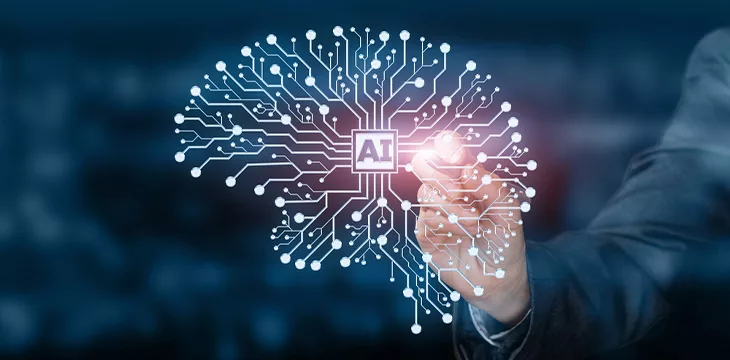|
Getting your Trinity Audio player ready...
|
As the European Union moves forward with its planned legislation for artificial intelligence (AI), Ukraine is laying the foundation for a seamless integration.
Under the roadmap by the Ministry of Digitial Transformation, Ukraine will begin preparations for the EU AI Act by launching a local legal framework to guide the activities of local firms.
The local rulebook will also push for excellent consumer safety by mitigating AI threats to users’ privacy and safety rights. Rather than a frantic rush to regulation, Ukraine’s blueprint lays out a “bottom-up” approach, which will see the government provide businesses with tools to prepare them to implement regulatory requirements.
The proposed approach will see regulators interface with AI developers, businesses integrating AI into their operations, and the general public to find the proper balance between protecting citizens’ privacy rights and advancing business interests.
“It is impossible to talk about a digital state if we do not form a progressive policy in the direction of artificial intelligence and an agenda for the world,” said Mykhailo Federov, Deputy Prime Minister for Innovation.
Ukraine’s AI roadmap gives room for self-regulation to promote the development of sector-friendly legislation.
“We intend to cultivate a culture of self-regulation among businesses through various means, including the voluntary adoption of ethical codes of conduct by companies. Additionally, we will provide businesses with a White Paper outlining the approach, timeline, and stages of regulatory implementation,” said Deputy Minister of Digital Transformation Oleksandr Bornyakov.
The integration of AI in businesses is expected to increase Ukraine’s gross domestic product (GDP) by double-digits before the end of 2030. Currently, the technology has found applicability in several sectors. AI has played a prominent role in the Ukrainian military’s defense against Russia, with Fedorov noting that the technology assists in guiding unmanned aerial vehicles (UAVs), tracks the movement of personnel, and can “shoot down enemy missiles.”
Following the EU’s Market in Crypto Assets (MiCA) release to regulate digital currencies, Ukraine announced similar plans to institute local legislation to support the MiCA’s integration.
EU’s AI Act rolls on
Across the region, countries are bracing for the launch of the AI Act, described as the “pioneering” legislation for emerging technology. The rules, placing consumer protection at its core, provide for clear labeling of AI-generated content and a blanket ban against their usage in predictive policing.
Despite the criticisms received from AI developers, the EU says it will be proceeding with a balanced approach to promote innovation and consumer safety. However, there are plans by the EU to hold more prominent AI developers like OpenAI and Google (NASDAQ: GOOGL) to higher standards to reduce the burden of regulation on smaller entities.
In order for artificial intelligence (AI) to work right within the law and thrive in the face of growing challenges, it needs to integrate an enterprise blockchain system that ensures data input quality and ownership—allowing it to keep data safe while also guaranteeing the immutability of data. Check out CoinGeek’s coverage on this emerging tech to learn more why Enterprise blockchain will be the backbone of AI.
Watch: Konstantinos Sgantzos Talks AI and BSV Blockchain with CoinGeek

 02-20-2026
02-20-2026 




